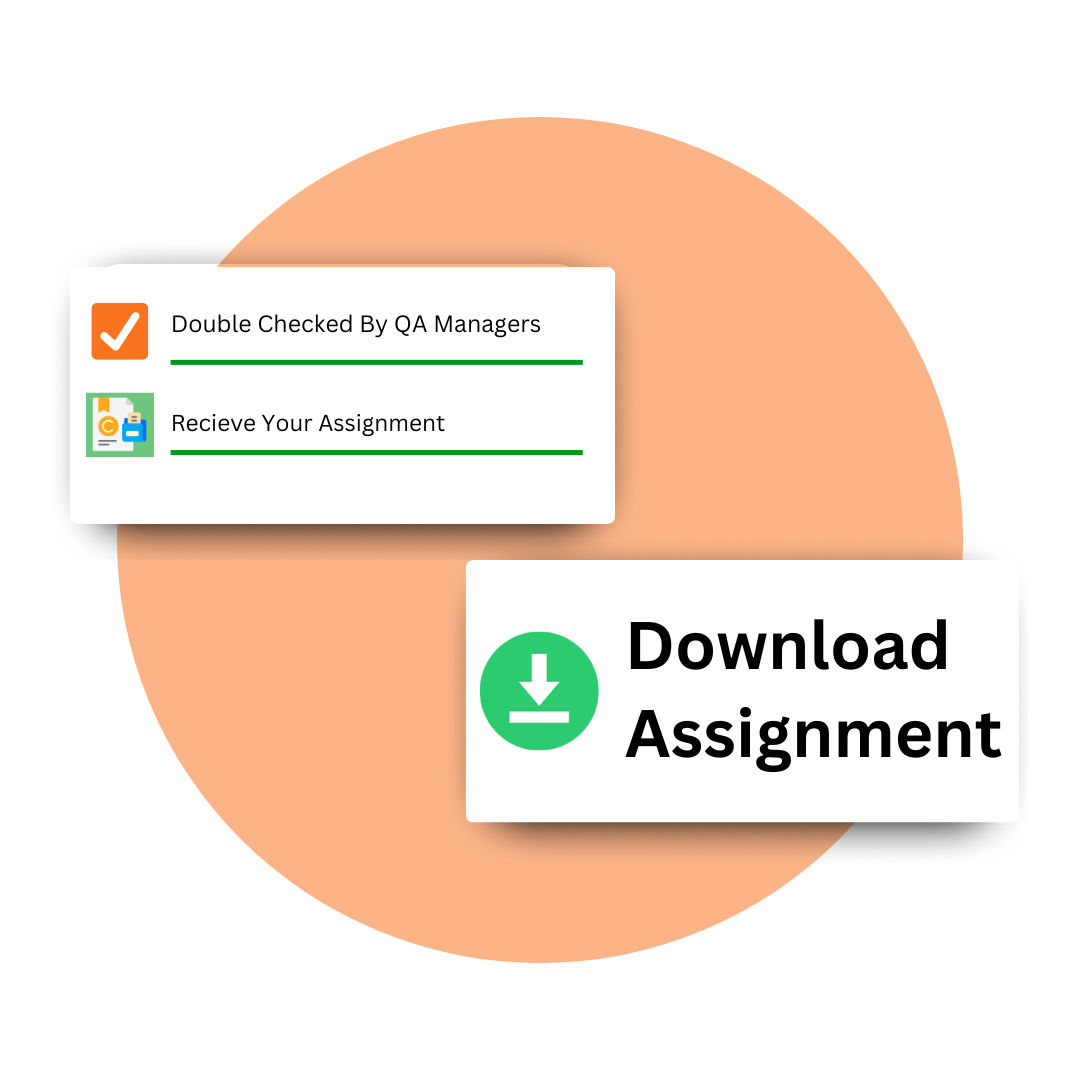Get hassle-free ILM Level 5 8607-550 assignment help in 3 simple steps and achieve success!

Fill out the order form to hire our ILM Level 5 8607-550 assignment writers and include all the important documents.

Make a secure payment using PayPal, credit/debit card or online banking services after receiving the form.

Download your completed ILM Level 5 8607-550 assignment from the inbox after our writers have completed it.
Our staff is comprised of in-house native PhD scholars and experienced professional writers with extensive experience in coaching, mentoring, and organisational development. They will understand the principles, theories, and practical applications required by the ILM Level 5 8607-550 assignment.
We carry out in-depth research on the latest coaching and mentoring practices within organisational contexts to provide you with custom-written assignments that meet the specific guidelines of the ILM Level 5 8607-550 course.
We offer complete 100% plagiarism-free work, where every assignment is carried out from scratch. Our strict quality control ensures that all of the work you receive is uniquely created and adheres to the highest standards of academia.
Our timely delivery ensures that your assignment is duly completed and submitted before the deadline, giving you abundant time to review. Punctuality is essential to your academic success.
Do you face difficulties with your ILM Level 5 8607-550 course on the skills, principles, and practices of effective coaching and mentoring in an organisational context? No problem. Our expert native writers will help you complete your assignment perfectly and with excellent success. We offer urgent, high-quality academic support tailored to specific requirements for your course.
Our experienced writers are well-versed in the challenges of the ILM Level 5 qualification and current trends, research, and best practices in coaching and mentoring within organisations. Whether it is theoretical work or the application of concepts, our writers shall deliver detailed and insightful work that meets your expectations for the assignment.
Coaching in the workplace entails a process in which a more experienced person (the coach) works with an employee to improve his or her performance, skills, and professional improvement. It is usually goal-specific and aims to help the employee improve in a specific area like leadership, communication, or task execution.
In contrast, mentoring is more of a long-term relationship whereby the senior or more experienced employee known as the mentor counsels, advises, and guides a less experienced employee known as the mentee. Comparing it to above, mentoring is broader in scope, with a tendency to being specialised in career development, personal growth, and one’s alignment with organisational culture, focusing on developing the whole potential of the mentee.
Individual Barriers:
Operational Barriers:
Organisational Barriers:
Coaching and mentoring are practices that can significantly benefit individuals and organisational performance. They build on the skills of individuals, help in increasing their confidence, and enhance personal development for more job satisfaction and career progression. Employees can be guided by experienced coaches or mentors to remove barriers to overcome challenges and set clear goals to develop essential competencies to improve their performance.
Coaching and mentoring create a best-of-breed workforce that is skilled, motivated, and engaged for an organisation. It also helps identify individuals with high potential, supports leadership skills development, and maintains high employee retention due to real investment in employee growth. Therefore, productivity will increase, team collaboration will improve, and alignment with business objectives will be stronger, thus eventually contributing towards generalised performance and competitive advantage.
Knowledge:
Skills:
Coaches and mentors need clear communication, which helps foster trust, understanding, and clarity in the relationships they need to develop with others. Clear communication helps deliver constructive feedback, creates goals, and discusses problems easily. Listening is what helps the coachee or mentee express their needs.
The effectiveness of questioning encourages reflection and self-awareness. Besides, good communication builds rapport, thereby ensuring a supportive and open environment that allows for the discussion of individual goals and struggles. In general, good communication skills are important in guiding people towards their personal as well as professional development.
The coach or mentor has a very key responsibility in handling relationships by maintaining boundaries, respecting values, and ensuring matters of fair play. They should be able to create a safe environment that is non-judgmental where people can express their challenges without fearing bias and prejudice. It respects the values and other people’s perspectives as well to recognise your own values so that it is avoided to pose one’s values on others.
The power game, after all, has to be balanced by the coach or mentor in such a way that they can empower the individual rather than dominate them and promote autonomy and mutual respect. Ethical standards built into the relationship include confidentiality and integrity which can form a good and productive relationship.
A widely used model in a formal coaching or mentoring process is the GROW model, an acronym that stands for Goal, Reality, Options, and Will. This process helps structure the coaching or mentoring sessions effectively.
Such an approach helps maintain the focus, induces clear communication, and brings measurable results; this is what makes it such a great framework for coaching and mentoring.
Effective contracting in coaching or mentoring would be essential for setting clear expectations and boundaries between the coach/mentor and the individual. The rationale behind is to establish mutual understanding and ensure that both parties are on the same wavelength in terms of goals, roles, and responsibilities. It helps build trust, create a safe environment, and prevent misunderstandings.
The key elements among those are clear objectives of the relationship as well as results, confidentiality, frequency, and length of sessions, and commitment to the process. This way of contracting makes sure that both parties-the coach/mentor and the individual-are responsible and will result in a productive and goal-oriented partnership.
All stakeholders must have expectations and boundaries explored in the coaching or mentoring program so the parties are aligned and clear. Well set expectations will enable both the coach or mentor and the one being coached or mentored to know very well what they intend to do, and their goals, while success is what it will look like.
Boundaries will also make sure that the relationship remains professional, respectful, but most importantly, developmental-focused. Therefore, involving such stakeholders as managers or members of the HR department in these dialogues means managing expectations, promotes accountability, and especially delivering a program that is effective, respectful, and beneficial to all.
Supervision of coaches and mentors is important to ensure high standards of practice and continuous professional development. It offers a structured space for reflection, which helps coaches and mentors assess their approach, discuss challenges, and fine-tune their skills. It also maintains ethics, provides consistent quality in the support offered, and prevents burnout through emotional and professional support.
Another significance is that it encourages accountability in ensuring that the coaches and the mentors attend to their clients in conformity with best practice. In essence, supervision increases the efficacy of coaching and mentoring to both those being coached and the organisation.
See how our assignment helper service has made a difference. Students share their experiences with our top-notch assignment solutions and expert guidance.
A
Alex Turner

ILM Assignment Helper played a key role in my success with ILM Level 3 assignments. Their team offered exceptional insights, guidance, and support. They ensured I understood the core concepts and applied them in my coursework, resulting in fantastic grades and a more solid grasp of leadership principles.
M
Michael Thompson

ILM Assignment Helper delivered high-quality work for my ILM Level 7 assignments. Their expert writers incorporated advanced research and real-world examples that directly aligned with my academic needs. With their support, I achieved excellent grades and was able to apply the knowledge practically in my career.
E
Emma Green

I couldn’t have asked for better help with my ILM Level 3 assignments. ILM Assignment Helper’s team provided clear, concise, and well-researched content that directly addressed the challenges in my coursework. With their help, I improved my grades significantly and gained a clearer understanding of leadership principles.
D
Daniel Hughes

I was having difficulty understanding some of the more complex management theories in my ILM Level 5 course. The team at ILM Assignment Helper provided tailored support that helped me break down these concepts into easily digestible pieces. Their research and writing assistance improved my work quality and led to top grades in my assignments.
C
Charlotte Roberts

ILM Assignment Helper was a lifesaver during my ILM Level 7 course. Their expert writers not only provided high-quality, well-researched content but also made sure the assignments aligned perfectly with the requirements of my curriculum. Thanks to their assistance, I passed with distinction and gained insights that will benefit me in my career.
J
James Carter

I was struggling to understand the practical application of leadership theories in my ILM Level 3 assignments, but ILM Assignment Helper made everything clear. The team’s input was invaluable, helping me complete my work with a deep understanding of how these theories apply to real-life situations. I received excellent grades thanks to their support.
Contact us for taking our assignment answer help of leadership and management.
